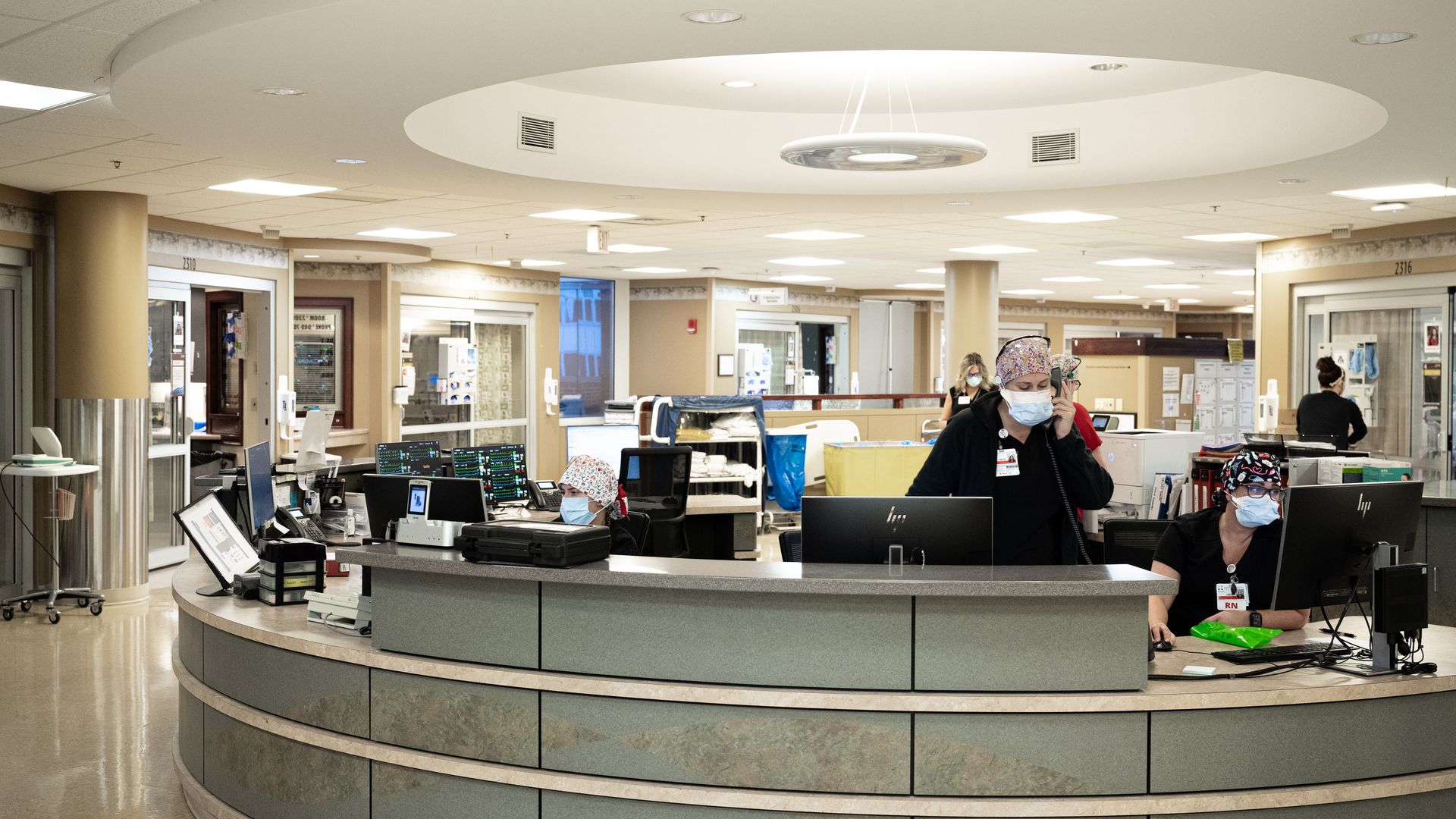Oct 19, 2021 - Health
The system of recalling flawed medical devices is broken
Add Axios as your preferred source to
see more of our stories on Google.

Hospitals may not learn about a medical device recall weeks after the fact. Photo: Jon Cherry/Getty Images
